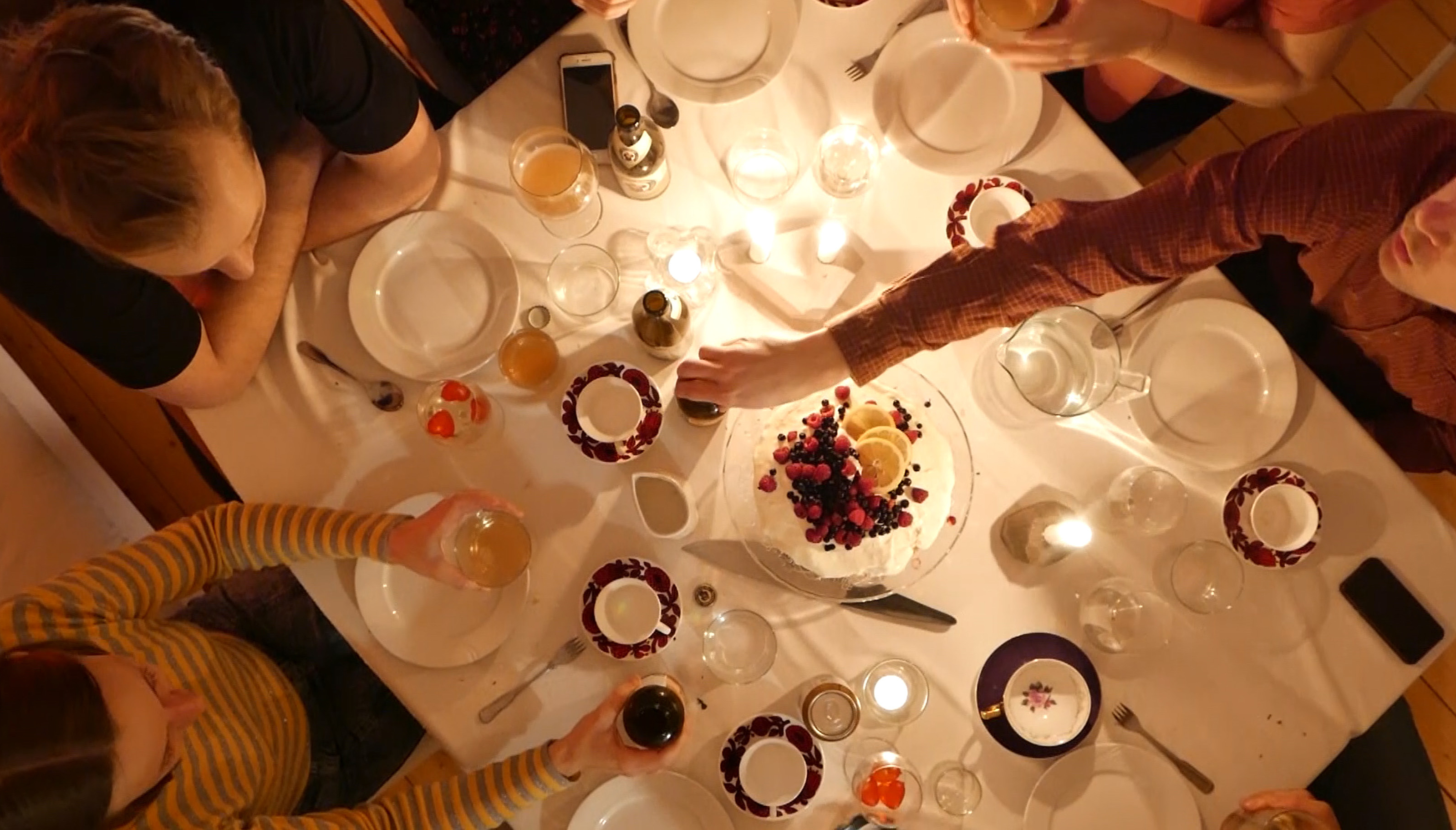
Degrowth, Step One
Konstfack, University of Arts, Crafts and Design
Research, 2019
Degrowth is a movement which calls for paradigmatic social and economic change. Global production, fueled by the consumption of the West, is depleting the Earth’s resources and causing environmental destruction. Degrowth therefore means complete transformation in how we live since separating economic growth from resource use is not possible.
So what can we as designers do? Our strength as designers and architects is our ability to turn visions (ideas/theory) into something tangible (shape/matter). We are, through this project, asking how we can look at the design process from a Degrowth perspective, and our way of doing this has been to oscillate between a theoretical and a practical approach using an everyday situation. Degrowth, Step One is a research based project where we dissect and look closer at the network of hosting a dinner. We believe that the future of our field could develop a deeper understanding of design and architecture as a part of many different contexts at the same time, not as isolated entities.
The production of a dinner has many underlying networks contributing to its design such as social conventions and rituals, cooking, food manufacturing, and multiple production processes of all accompanying tools, equipment and furnishings. By inviting guests and eating a meal together we could get a better understanding of some of these complex systems and their consequences.
Degrowth calls for paradigmatic change. To change we need to understand what needs to change and a way to approach this is to document how we live now, organised and unbiased. A tension becomes obvious between being subjective and open-minded. Subjective filtering is inevitable, through past experiences, current surroundings, way of life and privilege. Being open-minded is an aim in this project which is shown through organisation without being controlling. Host a dinner to document, not to measure.
Representation is design. Architecture is our expertise through which we filter all components of this project. We have used conventional architectural representation in the form of plan drawings and diagrams, in combination with the materialisation of abstract ideas using the camera. By translating a complex situation and dividing it into different modes of representation we found importances in different scales and mediums.
A dinner could be described as a cluster of networks that comes together and creates a whole. Our simplifications become a way of understanding the dinner through subjective observations. But instead of only simplifying we have moved back and forth between the specific and the greater whole as a method to develop and question the current concepts for design and architecture.
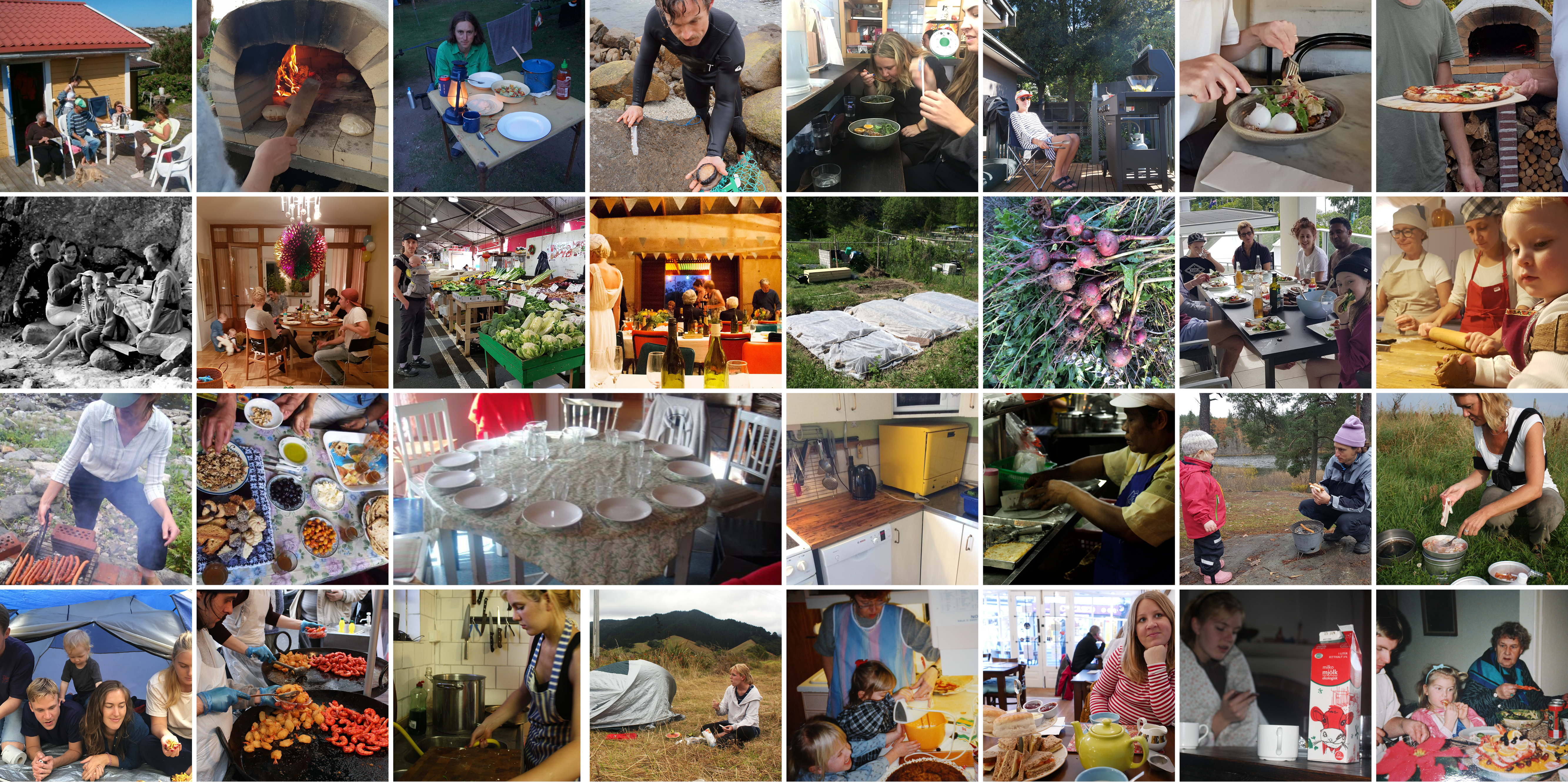
Collage of images that represent the kitchen, the result shows a varied collection of architecture of eating and the spatial conditions connected to preparing food.
The Canapé is about preparing food and the act of cooking. We wanted to explore nonchalance and remoteness as a way to provoke the viewer, but doing this subtly. The only exaggerated aspect is the choice of making a canapé, all other aspects stay true to how we often cook. We discard food that doesn't fit in regards to shape and colour and create piles of waste around the chopping board. All this to make a nice entrée.
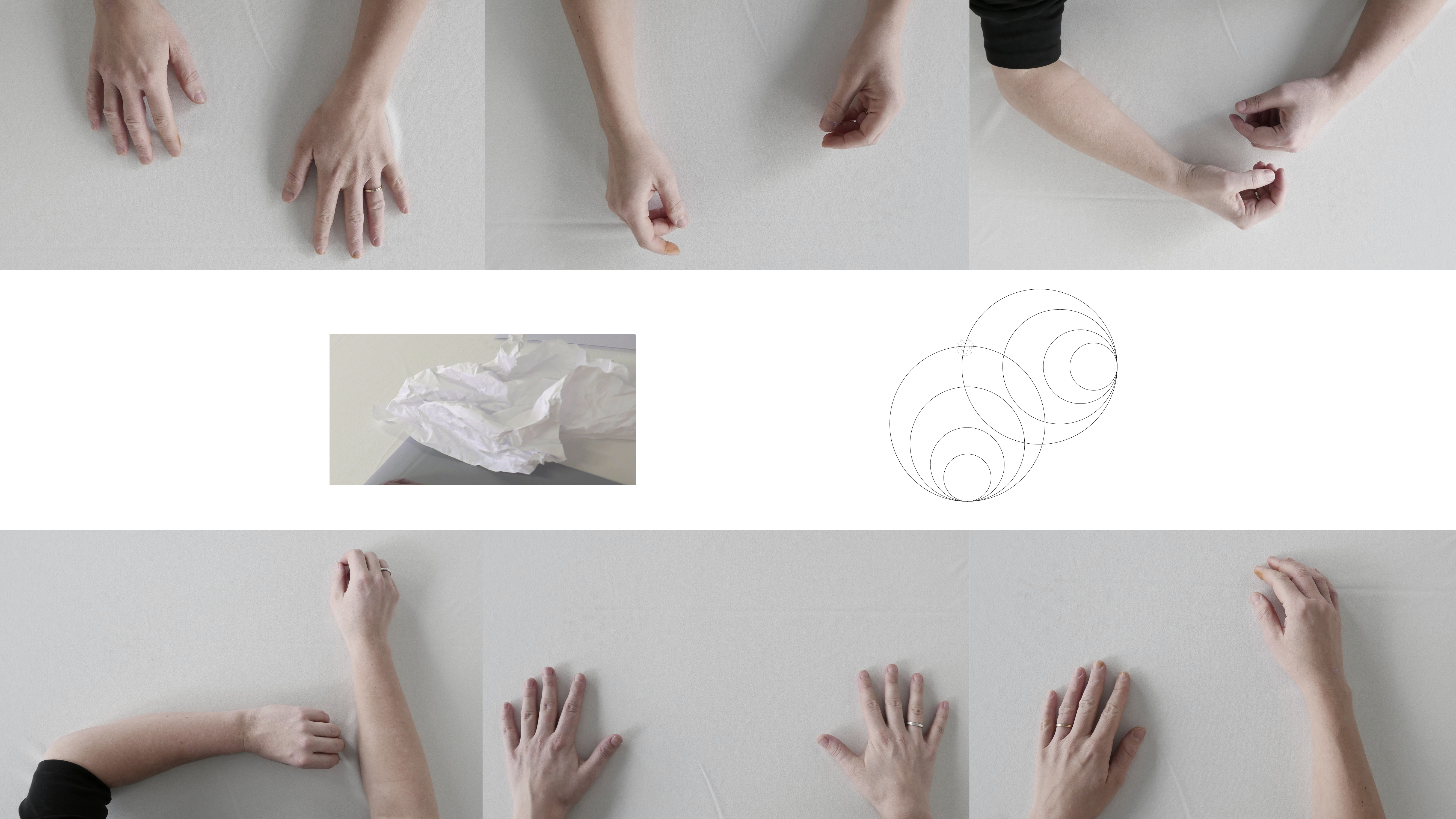
Bodily relations and haptic understanding of space, artifacts and other living creatures connected to the table.
Ourselves + ourselves in combination with society.
Ourselves + ourselves in combination with society.
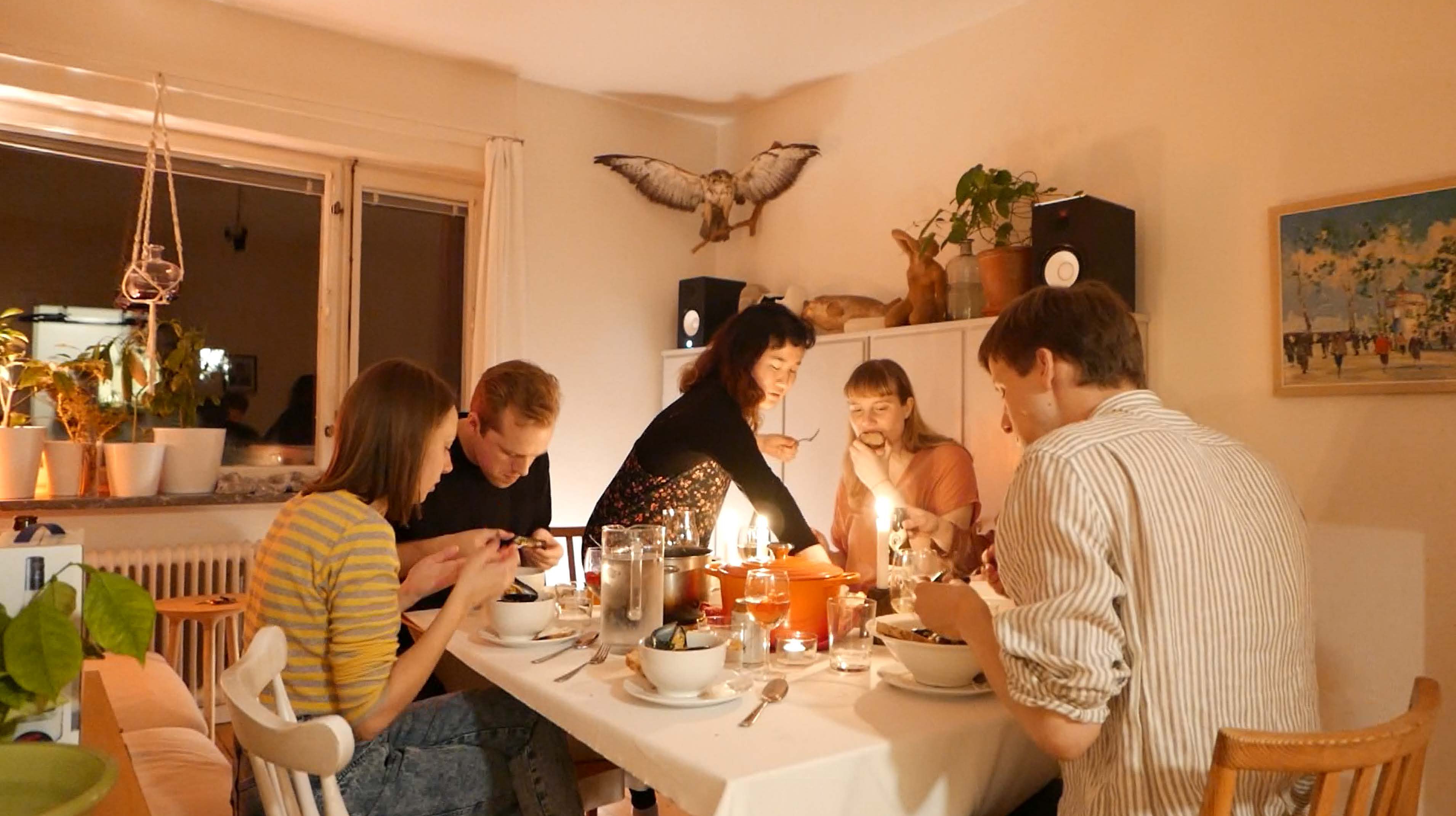
A practical investigation of hosting a dinner.
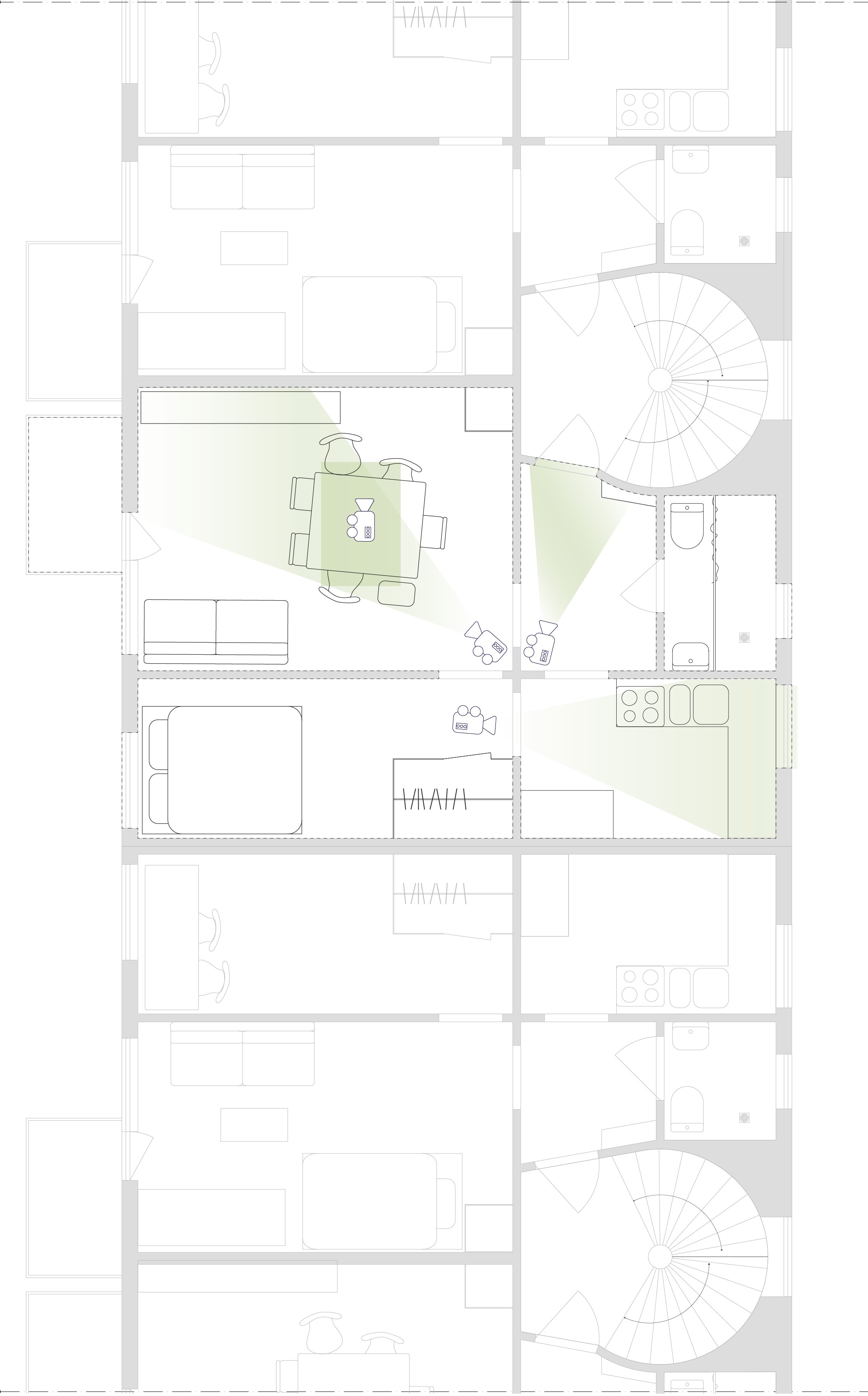
Placement of cameras for recording networks of activities connected to the dinner.
Representation of activities surrounding and contributing to the dinner through video. Preparing food, setting the table, greeting guests, eating together, cleaning, doing dishes.
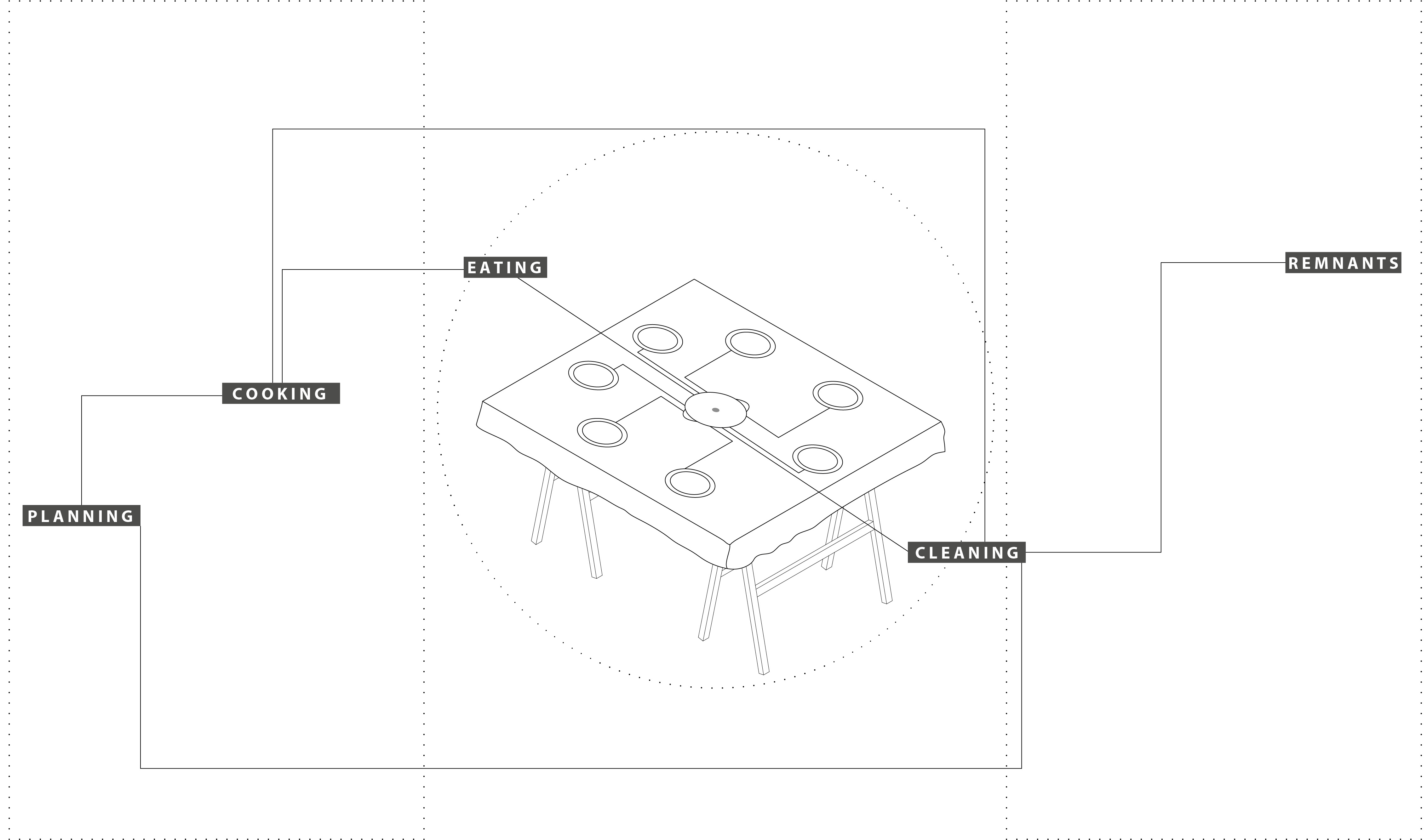
Representation of activities surrounding and contributing to the dinner through drawing.
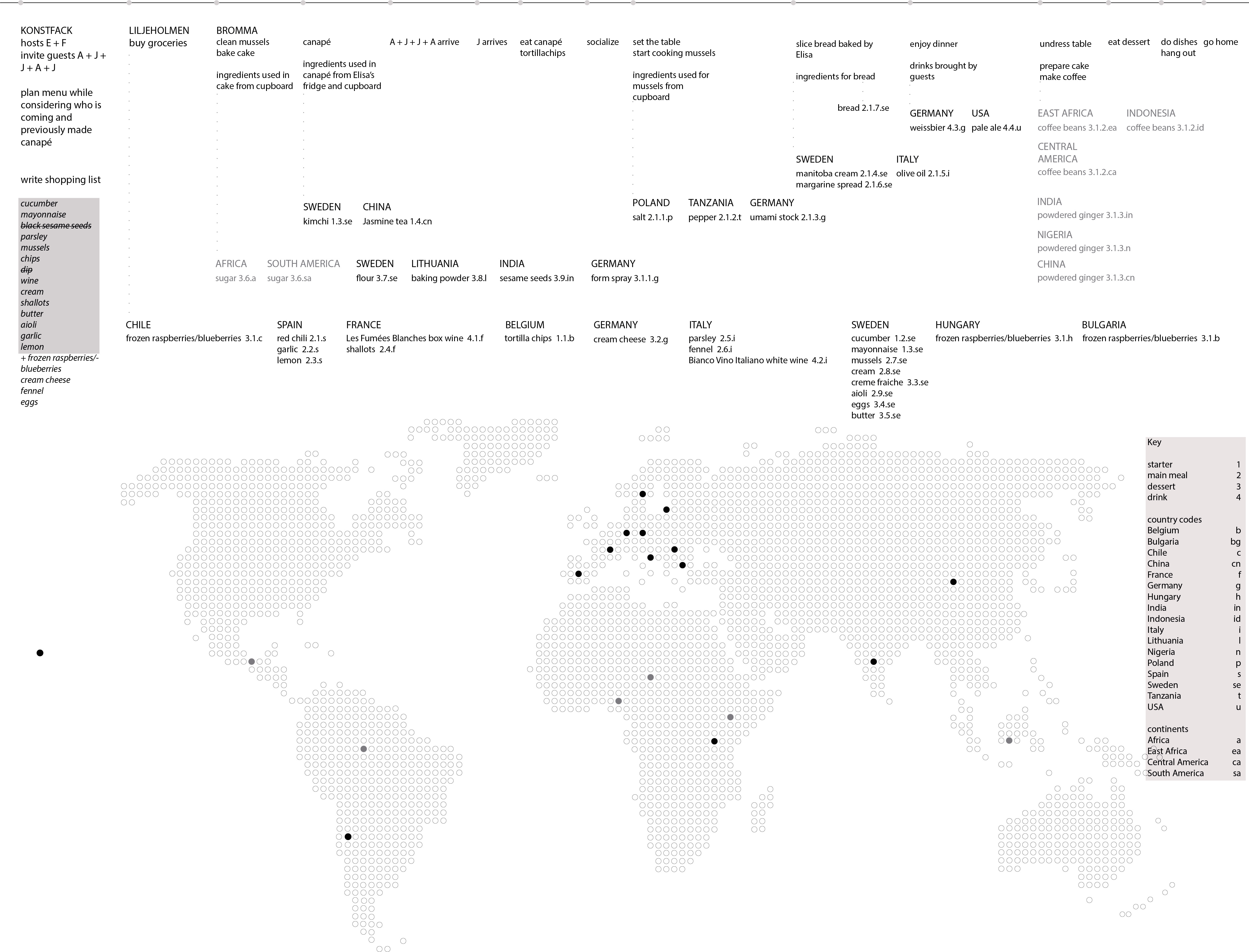
Dissecting and mapping the dinner shows how our current infrastructure allows us to buy ingredients from all over the world to compose one meal.


In the project Degrowth, Step Two this method has been put into practice, and in
To Dissect An Everyday Situation
we have shared
our process and invited students to participate in the further development of the method.